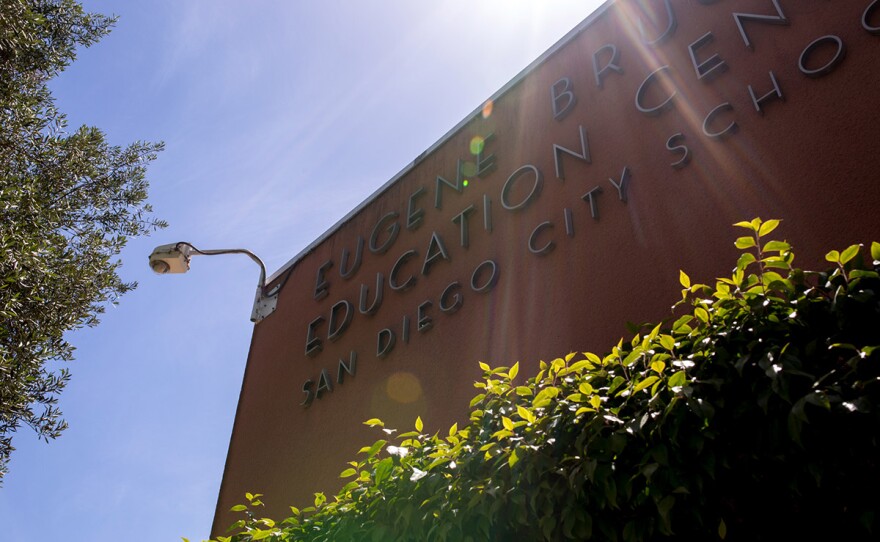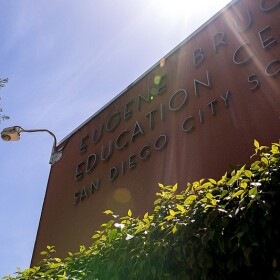In a new study described as a brief for the parents of black students in San Diego’s schools, researchers from San Diego State University detail the disparities in test scores and school discipline at San Diego Unified School District.
The report, titled “When They Teach US: The Education of Black Children in San Diego,” presents data from recent school years showing lower test scores and higher suspension rates for black students in the state’s second largest school district.
Among the main findings, black boys between Kindergarten and third grade during the 2017-2018 school year were nearly four times as likely to be suspended than their classmates in the same grade levels.
“We consider this to be a major problem because they are young children,” said Mohamed Abdi, an academic success coach at SDSU and one of the co-authors of the study. “These are the early years where they learn, and you know, good practices start young.”
The report, published by the Community College Equity Assessment Lab and the Black Minds Project at SDSU, also found that disproportionate suspension rates occur at schools designated as high performing schools on websites like GreatSchools.org.
“Some of these schools that are suspending a lot of black males are actually considered great schools,” Abdi said. “They are great schools, just not for us.”
Noemi Villegas, an instructional support officer for San Diego Unified, said the district will not shy away from these data points. The district will host a community meeting with the researchers at Lincoln High School on Nov. 18.
“We want to have conversations about what we can do to engage our black students,” Villegas said. “We want all of our parents to know that their students belong here.”
While black students have lower graduation rates and state test scores the district, their college readiness rates have increased by nearly 20 percentage points since 2014-2015. Two studies conducted by UCLA and the Learning Policy Institute found that San Diego Unified has made significant progress in achievement for disadvantaged students and educators’ commitment to equity.
Villegas said the district has implemented restorative justice practices that encourage teachers to listen to students rather than just punish them.
“A culturally responsive educator will try to get to the bottom of the behavior rather than criminalize that behavior,” Villegas said.
In response to the report’s findings, San Diego Unified Board President Sharon Whitehurst-Payne said both parents and the district need to do their part.
“One thing I’ve encouraged the system to do is to continue to look for ways to help teachers work with children who have special needs, who may be acting in a different way than what they expected,” she said. “It’s a two sided story there.”
Whitehurst-Payne urged parents to enroll their children in preschool to better prepare them for the classroom setting.








